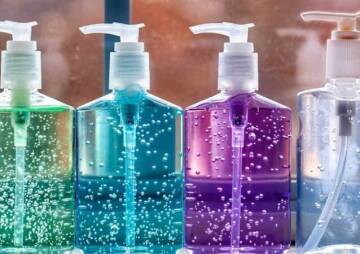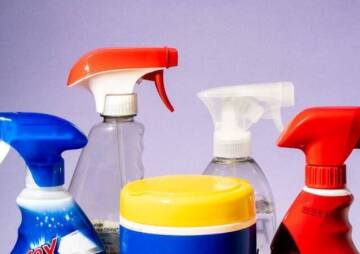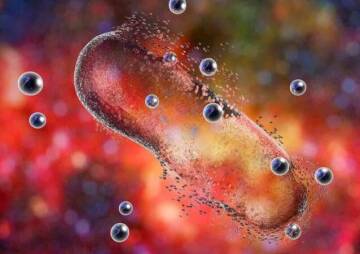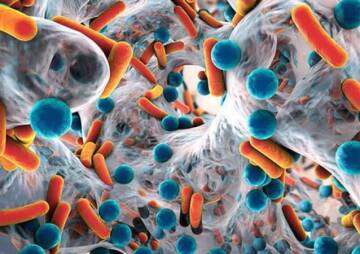-
Category
Craniomaxillofacial Surgery
Orthopedic Surgery
Spine Surgery
Orthopedic Implants
Hip Surgery
Knee Surgery
Pectus Excavatum
Bone Graft
Disinfectants
Healthcare
sanitizer side effects

Alcoholic disinfectants are designed to quickly reduce hand germs under certain conditions. But they do not kill all kinds of germs. Excessive use of alcoholic hand sanitizer can also irritate and even damage the skin. Join us to see the exact scientific content about the harm of alcoholic disinfectants.
Since the outbreak of the coronavirus, doctors, scientists and governments have been looking for the best health care options. According to the US Centers for Disease Control and Prevention (CDC), the best strategy to combat hand contamination is to wash them regularly with soap and water. This method has been proven to reduce the amount of microbes and chemicals on the hand without any side effects. (2)
But soap and water are not always available. In these cases, using a hand sanitizer can help prevent the spread of some pathogenic germs. Hand sanitizers work quickly and easily and are portable. But is not the long-term use of these disinfectants harmful to human health? As a chemical, these substances must have side effects. So should we ignore these side effects of alcohol disinfectants?
Many studies have been done in this field. It is not bad now that the use of these disinfectants has become a part of our lives due to the corona pandemic, let us be aware of the hidden effects of using them.
Of antiseptic hand
Hand sanitizers are classified into two types, alcoholic and non-alcoholic, depending on the type of active ingredient.
In most cases, the main ingredient in disinfectants is alcohol, which is combined with water, fragrances and glycerin. These substances contain 60 to 95% alcohol, usually in the form of ethanol, isopropanol or n-propanol . At this high concentration of alcohol, the proteins immediately go out of their natural form and effectively kill certain types of microorganisms. (12)

Other hand sanitizers that are non-alcoholic usually contain a combination of antibiotics called triclosan or yttrium chlorobarbane, and in some cases are made with benzalkonium chloride (BAC). Which have fast antiseptic and antimicrobial properties. Most of these disinfectants also use emollients such as glycerin, which will soften the skin after use. (12)
Nanosilver disinfectant is a type of non-alcoholic disinfectant that kills a wide range of microorganisms, germs, bacteria, and fungi. According to studies, these substances are more effective in killing 99.99% of germs and viruses such as cholera, swine flu, MRSA and norovirus, E-Coli and Salmonella, and are less harmful than alcohol. (15)
Do alcoholic disinfectants kill all germs?
Alcoholic disinfectants are designed to quickly reduce hand germs under certain conditions. But they do not kill all kinds of germs. The reasons for this vary, depending on the amount of disinfectant used, the duration of exposure to the air, the frequency of use, and whether the infectious agents in the person's hand are sensitive to the disinfectant. But the most important reason for not killing all germs is that people may not follow the instructions to use a sufficient amount of disinfectant gel. (2)

Alcoholic disinfectants, if rubbed on the hands for 30 seconds and dried in the air, can effectively reduce the amount of bacteria, fungi and some viruses, such as the flu virus. But in general, bacteria such as norovirus and some ring parasites are ineffective on bacterial spores. (12)
What is the effectiveness of non-alcoholic disinfectants?
The World Health Organization (WHO) and the US Centers for Disease Control and Prevention (CDC) recommend the use of alcohol-based disinfectants over non-alcoholic chemical products. The most important reason is concern about the safety of chemicals used in non-alcoholic disinfectants. For example, research has shown that triclosan may impair the functioning of the endocrine system or cause environmental pollution. (12) Nanosilver disinfectants are approved due to the absence of chemicals and negative side effects.
Learn more about the side effects of alcoholic and non-alcoholic disinfectants
Improper and non-standard use of disinfectants causes unwanted side effects. Although not all of these side effects have been scientifically proven, the existence of these negative effects has been observed in some scientific studies.
Antibiotic Resistance
Antibiotics are effective in fighting bacteria. But what happens if your body becomes resistant to antibiotics and the immune system malfunctions against bacteria?
Antimicrobials (including antibiotics, antivirals, and antifungals) are important for our health. They help us fight infections. Especially if the immune system is weak or at risk. However, some organisms (such as bacteria) mutate after exposure to antimicrobials because of damage to the DNA of bacteria.
This process can occur naturally during cell proliferation, or after exposure to genotoxic chemicals that damage cell DNA. A small amount of this type of DNA damage is normal due to cellular metabolism, especially in fast-growing bacteria. And it is easily repaired. But if the DNA is severely damaged, or if the repair is not done properly, the germ cells may survive. Or even the same bacteria may take resistant genes from other bacteria and increase their resistance. All of these conditions make them able to resist drugs designed to kill them. (7)

As with antibiotic abuse, overuse of hand sanitizers can lead to resistance of some species of bacteria to antibiotics.
Triclosan is one of the substances in disinfectants that makes bacteria resistant to antibiotics. In fact, overuse of disinfectants by killing good bacteria reduces the body's resistance to diseases caused by harmful bacteria and makes the treatment of bacterial diseases difficult or even impossible.
Therefore, there is a concern that overuse of hand sanitizers during a pandemic outbreak may lead to an increase in the number of microbial-resistant bacterial species. This is especially the case for treatment staff. And may even continue for a long time after the end of the pandemic. (7)
However, according to WHO guidelines, unlike chemical disinfectants and antibiotics, no research has been able to prove that the standard use of alcoholic disinfectants increases the resistance of bacteria to antibiotics. (14)
Alcohol poisoning
The active ingredient in some hand sanitizers is usually an alcohol that acts as an antimicrobial and kills bacteria. But just because it does not contain triclosan disinfectants does not mean that it is completely safe.
Continued use of an alcohol hand sanitizer is like regular use of an alcoholic beverage and can cause a high percentage of alcohol poisoning.
Methanol is a toxic alcohol and if absorbed in large amounts on the skin, it is absorbed into the skin and can have side effects such as nausea, vomiting, headache, hypothermia and bluish skin color. (8)

But according to WHO studies, there is no evidence that blood alcohol levels are too high after using the right amount of alcohol disinfectant. Usually this amount was very small and insignificant. (14)
But drinking methanol-containing hand sanitizer can cause problems such as blindness, seizures or damage to the nervous system, or in more serious cases can be fatal. This problem occurs especially for children due to lack of awareness. They may drink it without knowing what the disinfectant bottle contains.
On the other hand, many of us use hand sanitizer just before eating. These disinfectants contain a lot of chemicals and their continuous use, especially in children and young people, can cause poisoning. (10)

Parabens, which are present in many skin care products to increase the shelf life of the product, are toxic substances that are also used in many hand sanitizers.
Hormone disorders
Another effect of triclosan is hormonal problems. FDA research suggests that triclosan may lead to hormonal disorders, resulting in antibiotic-resistant strains. (1)
Triclosan is a powerful antibacterial agent and is used in pesticides. It is easily absorbed by the skin and can affect thyroid function and damage the liver and muscles. (10)
Hormonal disorders in the body cause bacteria to adapt to antimicrobial conditions and increase their resistance to antibiotics. This has raised serious concerns among health professionals about the use of hand sanitizers. They believe that any disturbance in the natural environment inside the body has destructive effects on health. This hormonal imbalance can also lead to infection and disease. (9)
If the alcoholic hand sanitizer is fragrant, it is probably full of toxic chemicals. Manufacturers are not required to disclose the ingredients of these fragrances and therefore generally use dozens of chemicals to scent these disinfectants. If these aromatic substances contain phthalates, they disrupt the function of the endocrine glands and ultimately affect the growth of the genitals. (10)
Weakening of the immune system
Triclosan can damage the immune system. Triclosan is a powerful antibacterial agent. While it kills countless germs from the body, it is equally successful in causing the growth of antibiotic-resistant bacteria. Researchers at the University of Michigan School of Public Health have found that triclosan may adversely affect immune function. By compromising the immune system, people become prone to allergies and become more vulnerable to the toxic chemical bisphenol A found in plastics. (1) or even make the body more vulnerable to traditional diseases (such as colds). (2)
Skin injuries
Excessive use of hand sanitizers can irritate and even damage the skin. Hand sanitizer reduces the skin's protective function and makes the skin membrane more permeable to harmful chemicals. In fact, high concentrations of alcohol can cause dryness and cracking of the skin, putting the skin at risk for bacteria.

Over time, using alcohol-based disinfectants can cause the skin on your hands to age faster than normal. The alcohol in the disinfectant solution makes it very inflamed, and dry and inflamed skin is prone to wrinkles and other blemishes. (10)
Should the use of alcoholic disinfectants be banned despite their side effects?
All of the above are the side effects of alcoholic disinfectants if they are improperly and excessively taken. But in pandemic situations where the use of disinfectants is an unavoidable necessity, it is necessary to balance the consumption of alcohol and use less harmful methods such as nano-silver disinfectants. (3)
- Disinfectants are a good complement to soap and water but are not a substitute. In other words, hand sanitizer should not replace hand washing, but should be used as a hand washing supplement in the absence of soap and water.
- The FDA also recommends the Centers for Disease Control and Prevention (CDC) that alcoholic hand sanitizers contain at least 60 percent alcohol. The higher the alcohol concentration (ideally between 60 and 95%), the better the hand sanitizers. Of course, if the amount of alcohol is less than recommended, this solution can reduce the growth of microbes, but it does not completely kill them. (6)
- The World Health Organization does not recommend spraying with disinfectants, especially for open spaces . Spraying disinfectants on the streets does not kill the corona virus and even poses a health risk. And it can be both physically and mentally harmful. Spraying chlorine or other toxic chemicals on people can cause eye and skin irritation, bronchospasm, and gastrointestinal effects. (13)
Limited use of standard alcoholic disinfectants as well as safe disinfectants such as nanosilver is inevitable for this hand during this pandemic period. But to take care of yourself and others, do not forget the social distance, the use of masks and frequent washing of hands.
Sources:
- https://www.thestreet.com/markets/5-hidden-dangers-of-hand-sanitizers-12966410
- http://blog.richterhc.com/hand-sanitizers-understanding-the-good-the-bad-and-the-ugly
- https://www.womenshealthmag.com/health/a32464311/does-hand-sanitizer-weaken-immune-system
- https://www.franciscanhealth.org/news-and-events/news/dirty-truth-why-hand-sanitizer-isnt-good-soap
- https://www.eatthis.com/side-effects-hand-sanitizer/
- https://www.healthline.com/health-news/how-to-tell-if-the-hand-sanitizer-youre-buying-is-safe#What-the-FDA-guidelines-say
- https://phys.org/news/2020-04-heavy-sanitizer-boosts-antimicrobial-resistance.html
- https://www.dshs.state.tx.us/news/releases/2020/HealthAdvisory-20200427.aspx
- https://www.thehealthsite.com/diseases-conditions/global-handwashing-day-2019-5-side-effects-of-hand-sanitizers-you-didnt-know-about-694202/
- https://timesofindia.indiatimes.com/life-style/health-fitness/health-news/coronavirus-vaccine-can-be-expected-by-early-2021-not-before-says-cautiously-positive-dr- anthony-fauci / photostory / 76876522.cms
- https://www.geisinger.org/health-and-wellness/wellness-articles/2017/03/22/14/40/when-to-use-hand-sanitizer
- https://www.britannica.com/topic/hand-sanitizer
- https://www.france24.com/en/20200516-spraying-disinfectants-can-be-harmful-says-who
- https://www.who.int/gpsc/tools/faqs/abhr2/en/
- http://www.nanotech-now.com/news.cgi?story_id=41195






